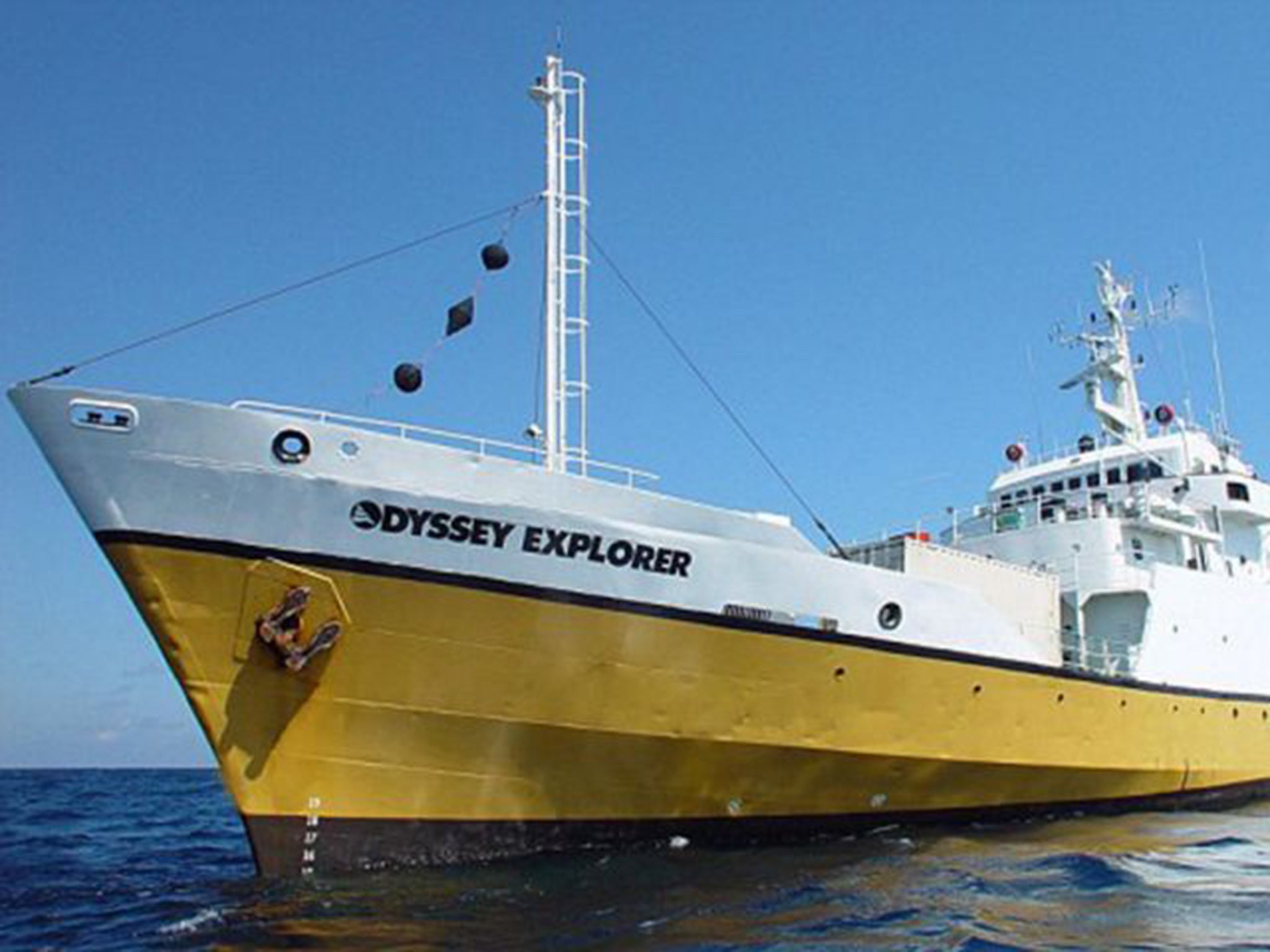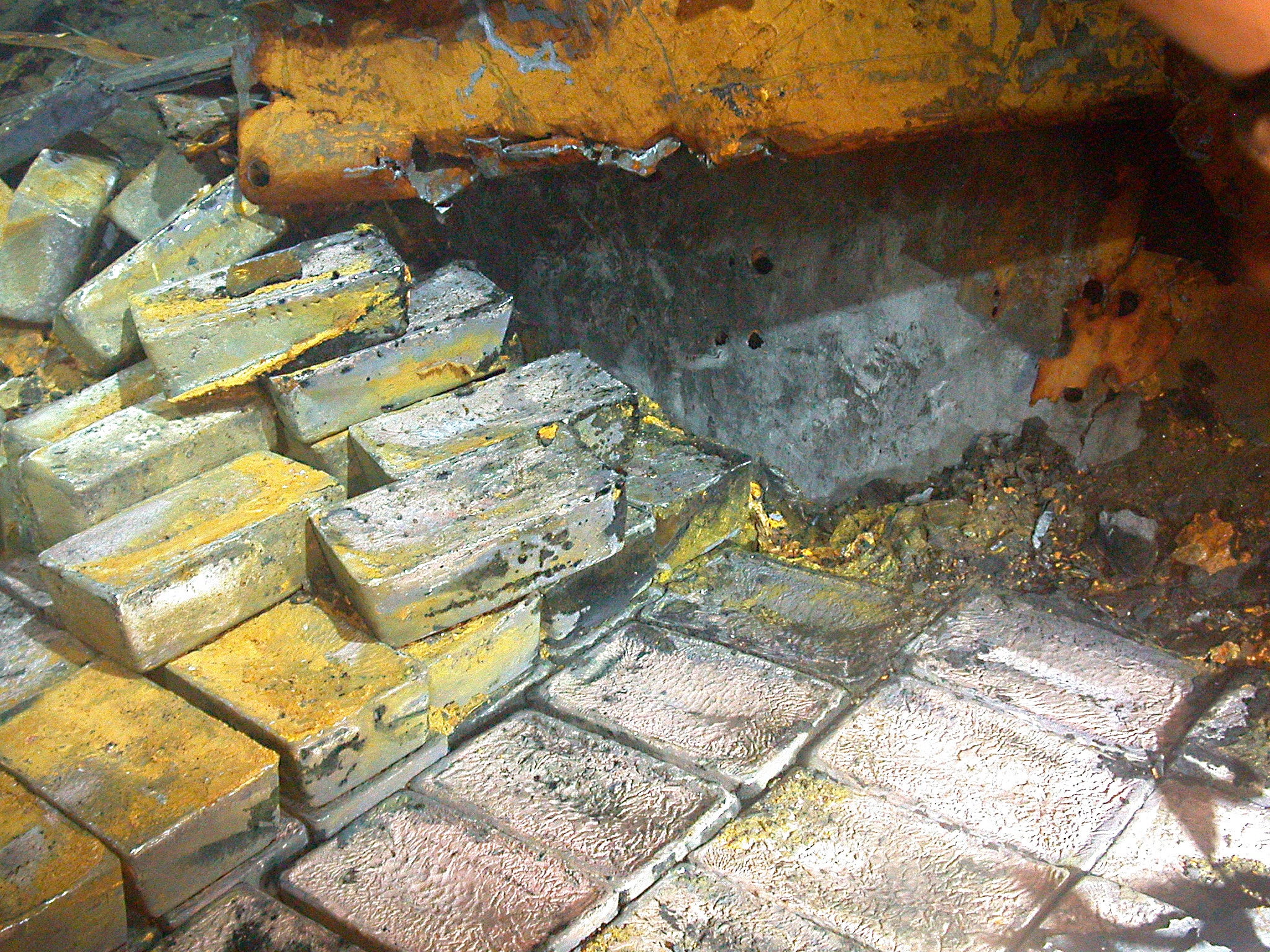Odyssey Explorer: Cyprus to examine suspect cargo of antiquities from offshore supply ship
Exclusive: Finds were seized on suspicion of being antiques recovered without permission from Cypriot waters

Your support helps us to tell the story
From reproductive rights to climate change to Big Tech, The Independent is on the ground when the story is developing. Whether it's investigating the financials of Elon Musk's pro-Trump PAC or producing our latest documentary, 'The A Word', which shines a light on the American women fighting for reproductive rights, we know how important it is to parse out the facts from the messaging.
At such a critical moment in US history, we need reporters on the ground. Your donation allows us to keep sending journalists to speak to both sides of the story.
The Independent is trusted by Americans across the entire political spectrum. And unlike many other quality news outlets, we choose not to lock Americans out of our reporting and analysis with paywalls. We believe quality journalism should be available to everyone, paid for by those who can afford it.
Your support makes all the difference.When the distinctive blue hull of the offshore supply ship Odyssey Explorer appeared off the coast of Cyprus shortly before Christmas, the authorities wasted little time in acting on a tip-off that they should take a look at what was on board.
The 40-year-old British-built vessel docked in Limassol and within hours was made the subject of a temporary confiscation order. Customs officers and officials from the Cypriot Department of Antiquities were shown the cargo hold, where they found 57 plastic crates containing 588 separate artefacts dating from the 18th century.
The 300-year-old finds were seized on suspicion of being antiques recovered without permission from Cypriot waters.
For Odyssey Marine Exploration, the American underwater archaeology and salvage company which owns the Odyssey Explorer, it was the latest international incident during two decades of scouring the world’s oceans to pinpoint historic – and often treasure-laden – wrecks.
The seizure of the Explorer took place within days of the announcement of a major restructuring of the Florida-based company, which included the sale of its painstakingly acquired database of potentially lucrative shipwrecks in order to settle its multimillion-dollar debts while keeping a 21 per cent share in profits from future projects.
The company also continues to hold contracts with the British government and other UK bodies for the recovery of several historic naval gunships and cargo vessels.

The agreements include a deal to undertake the exploration of the HMS Victory, a predecessor to Nelson’s flagship of the same name, which sank in the English Channel in 1744. But the enduring ability of marine archaeology to generate friction between the authorities and treasure hunters was last week in evidence as Cypriot experts pored over the content’s of the Odyssey Explorer’s cargo hold.
The Independent on Sunday has been told that the items collected from an unspecified wreck in the eastern Mediterranean by the Bahamian-flagged vessel include porcelain, metal forks, spoons, cups and everyday objects such as Ottoman pipes likely to have belonged to the crew of the sunken vessel.
The Cypriot authorities have acknowledged that the artefacts do not appear to have originated from Cyprus, leaving open the possibility that they came from waters off the coast of Lebanon, where it is claimed the vessel may have been operating prior to its arrival in Limassol.
In a statement, the Cypriot foreign minister, Ioannis Kasoulides, said his country had an obligation to investigate the cargo and seek information from the Odyssey Explorer’s 13-strong crew. He suggested that the vessel may have been operating within the exclusive economic zone of Lebanon, which extends to 212 nautical miles from the coast.
Odyssey has strongly denied that its ship had been operating illegally or that it had been within either Cypriot or Lebanese territorial waters (extending to 12 nautical miles from their coasts).
In a statement, the company said: “The project design anticipates full publication of the results of the op- eration and exhibit of the ... artefacts.
“Our crew was operating legally in the Mediterranean Sea within the parameters governed by United Nations Law of the Sea. Permissions for such projects not required.”
It added: “Information provided … by Cypriot law enforcement stated that their investigation confirmed that Odyssey Explorer did not operate illegally and the investigation concluded without any charges.”
The Cypriot authorities were this weekend tight-lipped about their findings, confirming only that the Odyssey Explorer had been cleared to leave Limassol and the seized artefacts remain under lock and key at an undisclosed customs facility.
A Cypriot government source told The IoS: “The inspection [of the artefacts] continues but it is a sensitive subject. The ship is free to leave Cyprus.”
Odyssey has previously had to contend with other seizures of its vessels amid legal rancour.
In 2007, the Odyssey Explorer was ordered to surrender to the Spanish authorities under what its captain said had been “threat of deadly force” as it left Gibraltar. The vessel was eventually allowed to continue on its way after a search.
The incident coincided with rising tensions between Odyssey and the Spanish authorities after the company announced it had recovered 17 tons of silver coins from a wreck that, it later transpired, was an early 19th-century Spanish frigate, the Nuestra Señora de la Mercedes, and Odyssey was forced to return the bullion after a five-year legal battle that went to the US Supreme Court.
The Odyssey Explorer left Limassol on Friday, bound for Beirut.
Join our commenting forum
Join thought-provoking conversations, follow other Independent readers and see their replies
Comments